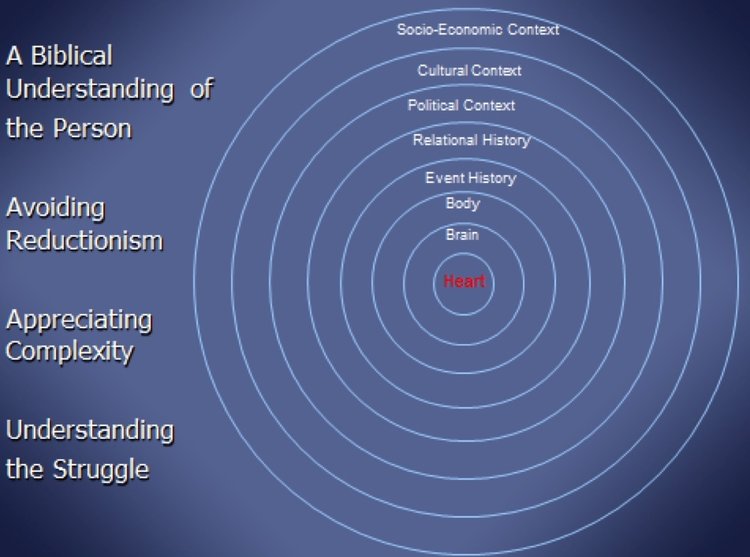Fighting Temptation
/Anglican Bishop J. C. Ryle (1816-1900), once said that there are at least two marks that indicate that someone has become a Christian:
1. There is a new peace!
2. There is a new fight!
He couldn’t have spoken more accurately. There is a new peace because you have been reconciled in your relationship with God through Jesus’ life, death and resurrection. You experience forgiveness of sins, reconciliation with God and a conscience that has been cleansed from guilt and shame.
There is a new fight because the Holy Spirit is now at work in you, providing enabling power to fight the remnants of remaining sin. That’s a strange combination but one that Scripture wholeheartedly proclaims.
As for point 2, what does it look like to fight temptation?
1. Know what Temptation Is:
2 Consider it pure joy, my brothers and sisters, whenever you face trials of many kinds, 3 because you know that the testing of your faith produces perseverance…..12 Blessed is the one who perseveres under trial because, having stood the test, that person will receive the crown of life that the Lord has promised to those who love him.
13 When tempted, no one should say, “God is tempting me.” For God cannot be tempted by evil, nor does he tempt anyone; 14 but each person is tempted when they are dragged away by their own evil desire and enticed. 15 Then, after desire has conceived, it gives birth to sin; and sin, when it is full-grown, gives birth to death.
James 1 is a very helpful chapter when defining temptation. In James 1, the same Greek word for temptation is used in verses 2, 3, 12, 13 and 14. It means 2 different things based upon the context. In verses 2, 3, and 12, the word means external pressures. In verses 13 and 14, the word means an internal battle. Those are very different meanings. According to James, God sends external trials or tests for the purpose of deepening our trust in him (vv. 2, 3, 12). He never sets traps (vv. 13-14) to cause us to fall into sin and disobedience. So, a temptation is an internal war within each believer between remaining sin and the new power of the Holy Spirit.
2. Know the Context of Temptation:
9 Believers in humble circumstances (poverty) ought to take pride in their high position. 10 But the rich should take pride in their humiliation—since they will pass away like a wild flower. 11 For the sun rises with scorching heat and withers the plant; its blossom falls and its beauty is destroyed. In the same way, the rich will fade away even while they go about their business.
James 1:9-11 speak of the rich and poor. What is the point? Both riches and poverty are equally trials! In other words, a life of adversity has its challenges as does a life of prosperity. We can be easily duped into thinking that all is well in a season of blessing and that all is not well in a season of adversity. Nothing could be further from the truth. When life is moving along without any trouble, it is tempting to think that you don’t really need God’s grace. That is a very serious place to be.
3. Know the Stages of Temptation:
13 When tempted, no one should say, “God is tempting me.” For God cannot be tempted by evil, nor does he tempt anyone; 14 but each person is tempted when they are dragged away by their own evil desire and enticed. 15 Then, after desire has conceived, it gives birth to sin; and sin, when it is full-grown, gives birth to death.
James 1:13-15 spell out the slippery slope of temptation. It begins with a simple desire, but that desire quickly morphs into a demand. Why? Because of the condition of the heart of the person. It is due to a desire to worship anything but the true and living God. This slippery slope leads to death not life.
4. Know the Way Out of Temptation:
16 Don’t be deceived, my dear brothers and sisters. 17 Every good and perfect gift is from above, coming down from the Father of the heavenly lights, who does not change like shifting shadows. 18 He chose to give us birth through the word of truth, that we might be a kind of firstfruits of all he created.
James 1:16-18 seem out of place after a long section on external trials and internal battles. But it is precisely what we need. For James, the way out of temptation is through a new power and dynamic of worship. Seeing the Father as the giver of all good gifts. Especially the One perfect gift that brings new birth. That One gift is Jesus, who comes to free us from the bondage of guilt and shame.




